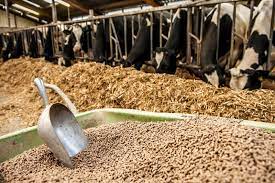There are three main types of animal feed:
- Roughages: Roughages are high-fiber feeds that are low in energy. They are important for the digestive health of livestock and can help to prevent problems such as constipation and bloat. Examples of roughages include hay, straw, and silage.
- Concentrates: Concentrates are high-energy feeds that are low in fiber. They are important for providing livestock with the energy they need to grow, reproduce, and work. Examples of concentrates include grains, soybeans, and corn.
- Mixed feeds: Mixed feeds are a combination of roughages and concentrates. They are often used to provide livestock with a balanced diet that meets their individual needs.
The supply of animal feed can be affected by a number of factors, including:
- The availability of raw materials: The availability of raw materials for animal feed, such as grains and soybeans, can fluctuate depending on the weather and market conditions.
- The demand for animal products: The demand for animal products, such as meat, milk, and eggs, can also affect the supply of animal feed. When demand is high, prices for feed may also increase.
- Government regulations: Government regulations can also affect the supply of animal feed. For example, some countries have regulations that restrict the use of certain feed ingredients, such as antibiotics.
Animal feed supply is a complex issue that is affected by a variety of factors. It is important to be aware of these factors in order to ensure that livestock have the resources they need to stay healthy and productive.
Here are some additional tips for ensuring a reliable animal feed supply:
- Diversify your feed sources: Don't rely on a single source for all of your feed ingredients. This will help to protect you from price fluctuations and supply disruptions.
- Store feed properly: Make sure to store feed in a cool, dry place to prevent spoilage.
- Monitor your livestock's feed intake: Be sure to monitor your livestock's feed intake to make sure they are getting enough to eat.
- Talk to your veterinarian: If you have any concerns about your livestock's feed supply, talk to your veterinarian. They can help you develop a feeding plan that meets your animals' individual needs.
By following these tips, you can help to ensure that your livestock have a reliable source of animal feed and stay healthy and productive.
